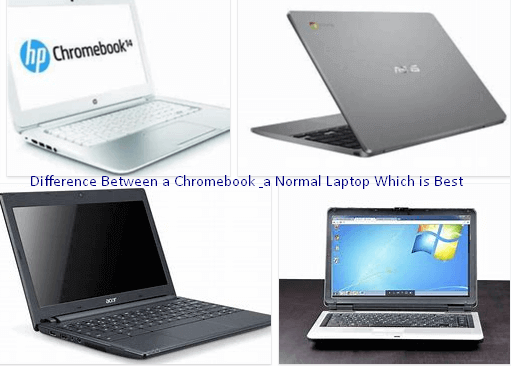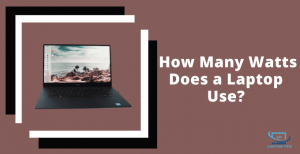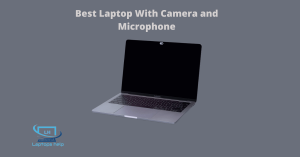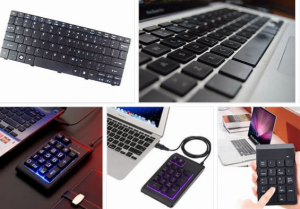Chromebooks are an economical alternative to Windows laptops or MacBooks. Chromebooks run on the Google operating system Chrome OS. This means that Windows and macOS programs will not work on these devices. That doesn’t mean Chromebooks aren’t without their advantages over other laptops.
Of course, Chromebooks are less difficult to customize than laptops. They provide a specific set of features. That’s all.
System software: the basic difference between the two devices is, of course, the system software. Chromebooks run on an Operating System OS that serves as a platform on which other programs on the Chromebook run.
On the other hand, normal laptops are powered by Microsoft Windows, Mac OS, or a custom OS that serves as the main system for other programs to work. Now the question that may come to your mind is which product is worth the investment.
To make a clear and satisfying decision, you must be familiar with both products’ basic features. It would be best if you also found the differences between them to make the perfect choice for one.
Further differences between the two gadgets can be assessed with the help of the two points mentioned above since they are completely based on the software used for programming.
Chromebook vs Laptop Difference Between Chromebook and a Normal Laptop: Which is best?
The decision, decision. Old laptop or Chromebook? You want a thin and light PC, but which portable system is best for you?
Could it be a better choice because of the laptop’s overall versatility? Or is the Chromebook’s minimal operating system OS and web-based usability better suited to your needs? Read on to learn the differences between Chromebooks and standard laptops, the relative strengths of each device, and which meets your needs in terms of the most overall value.
What is the difference between a Chromebook and a laptop?
Laptops and Chromebooks are portable PCs designed to be used wherever a computer is needed, e.g., on a desk, on a sofa, or while travelling. But there are many differences between the two, some of which may be important to your purchase. Decision.
Differences between Chromebooks and traditional laptops
Strictly speaking, standard laptops and Chromebooks are ‘notebooks,’ each of which is portable and can be operated on your lap. Of course, there are more. Here’s a quick look at how laptops and Chromebooks differ.
A normal laptop
Most users are already familiar with laptops. Laptops are controlled by a PC operating system, such as Microsoft Windows 10, which provides a familiar “desktop” workspace for running programs, creating documents, and storing files.
Hundreds of gigabytes minimum of internal storage are provided by spinning hard disk HDDs or solid-state drives SSDs. Laptops may also have additional features such as optical drives, e.g., DVDs, CDs, etc., and multiple ports for connecting external devices and accessories.
For example, Dell Alienware laptops are designed for the best gaming. The Alienware 17 R4 laptop is for business and professional users. There are so many different types of laptops that, for some buyers, buying a simple yet powerful Chromebook might seem like a breath of fresh air.
Chromebook laptop
Unlike laptops, which can be slow when running out of memory or accessing internal storage components, Chromebooks behave slightly differently:
Chrome OS: Chromebooks are powered by a lightweight compared to Windows Google Chrome OS that uses the Chrome web browser as its main user interface UI. Almost everything is done online within the Chrome browser or the cloud, improving overall system speed and efficiency.
Browser-based web apps: Chromebooks are designed to use web-based applications, not the software you load into local storage. Web-based apps can be accessed anytime, anywhere. Enter the URL of the web-based tool to increase your productivity.
Memory and cloud storage: Another benefit of web-based apps is that they typically reduce the need for RAM. Although Chromebooks have local storage, users typically store documents, photos, music, and other files in the cloud and conveniently sync and store data across multiple devices, Chromebooks, tablets, and smartphones.
Chromebooks are rarely used because they don’t require the latest and fastest processors. Also, many features, such as high-end graphics cards, mass storage drives, etc., are intentionally missing, making Chromebooks lighter and more streamlined than regular laptops.
Are laptops and Chromebooks similar?
Some things mentioned here are not system-specific. Laptops can use cloud storage and web applications, just like laptops. Chromebooks have multiple ports and USB and fewer than many laptops.
The fundamental difference between Chromebooks and standard laptops is always Chrome OS and how it affects operations. However, there are a few categories where Chromebooks and laptops score roughly equal.
Battery Life: Laptop battery life has improved, partly because designers have found ways to add more batteries without making them too heavy. Chromebooks have less room for a large battery, but a lighter OS allows for more.
Portability: All Chromebooks are designed to be extremely thin and light. Laptops come in many different sizes and weights, but it’s easy to find a laptop the size of a Chromebook. Lenovo’s Ideapad series has many options compared to ultraportable Chromebooks.
Durable: Laptops with sturdy frames and keyboards have long been popular in the military and heavy-duty industries. Chromebooks are catching up with fewer moving parts and features like rubber bumpers, reinforced ports, and stronger edges to limit damage from accidental drops.
Also, as Chrome OS evolves, more PC-like features become available. For example, some Chromebooks now optionally offer a Windows-style desktop. Likewise, PC operating systems are becoming similar to Chrome in some ways. Windows 10 runs native apps in a similar way to Chrome OS. You can also download more apps from the Microsoft Store, just like you can download them from the Chrome Web Store and Google Play.
Frequently Asked Questions:
1. Which laptop provides faster processing?
Starting the Chromebook provides fast processing with the latest cutting-edge technology. However, storage availability must also be compromised with this facility.
Chromebooks have launched a few models with 64 GB of storage, but they usually come with a minimum of 16 GB and a maximum of 32 GB. So this gadget only provides fast processing, but it lacks here because the storage range is not wide.
On the other hand, laptops are relatively slow to process but are bright at offering a wide range of storage. Most models are designed with a minimum of 32 GB and a maximum of 64 GB or more storage.
2. Which one is efficient enough for your application?
Here is another distinguishing difference as we cover the differences between Chromebooks and laptops. When it comes to browsing, a Chromebook is like any other tab used in Google or Chrome. You can run apps directly from there, but you can’t download apps.
Laptops running Microsoft can download the necessary apps. You can access the app by selecting and pressing the download option. However, a Chromebook allows you to run programs without an Internet connection. Yes, it is! No internet connection is required. So you can use your Chromebook on the go with less Wi-Fi.
3. Which one puts a strain on your pocket?
If we were to talk about money requirements, we would vote in favour of Chromebooks. Chromebooks are much cheaper than laptops.
A well-made, high-end laptop costs 10x more than a Chromebook. What stands out the most here is that the two products are almost identical.
Chromebooks are stylish, very smart, have an updated design, and so are laptops. With so little difference, it is impossible to tell a clear difference between the two gadgets.
Because pockets are important, Chromebooks are a reasonable choice as they offer many features and an affordable budget.
4. What are the advantages of Chromebooks?
There’s no doubt that Chromebooks are the latest updated devices many people use. Chromebooks are best for running programs that are lightweight compared to laptops.
It is not very suitable for running heavy files or loading heavy programs. You can use the device for light browsing, gaming, and video streaming.
5. Can Chromebooks Replace Laptops?
To be more precise and straightforward, the answer is no. Chromebooks aren’t efficient enough to run heavy programs and are limited to light use only. Laptops, on the other hand, offer a variety of features along with different storage capacities.
6. Can I watch Netflix on my Chromebook?
Yes, you can easily access Netflix. All you need is to download the app from the Google Play Store, or you can also watch the video directly from the website.
Final Words:
At the end of the full discussion, the two devices discussed above are the most advanced and useful gadgets: Chromebooks and laptops. Both have certain differences that make them both interesting and worth buying.
The point mentioned above is that Chromebooks and laptops are worth using in one way or another. When one feature falls short of another, it fills this space with other advanced features that others don’t.
So, to make a fair decision, use the product you’re considering to invest valuable money, see your own needs, and then decide which one is best according to your needs.




